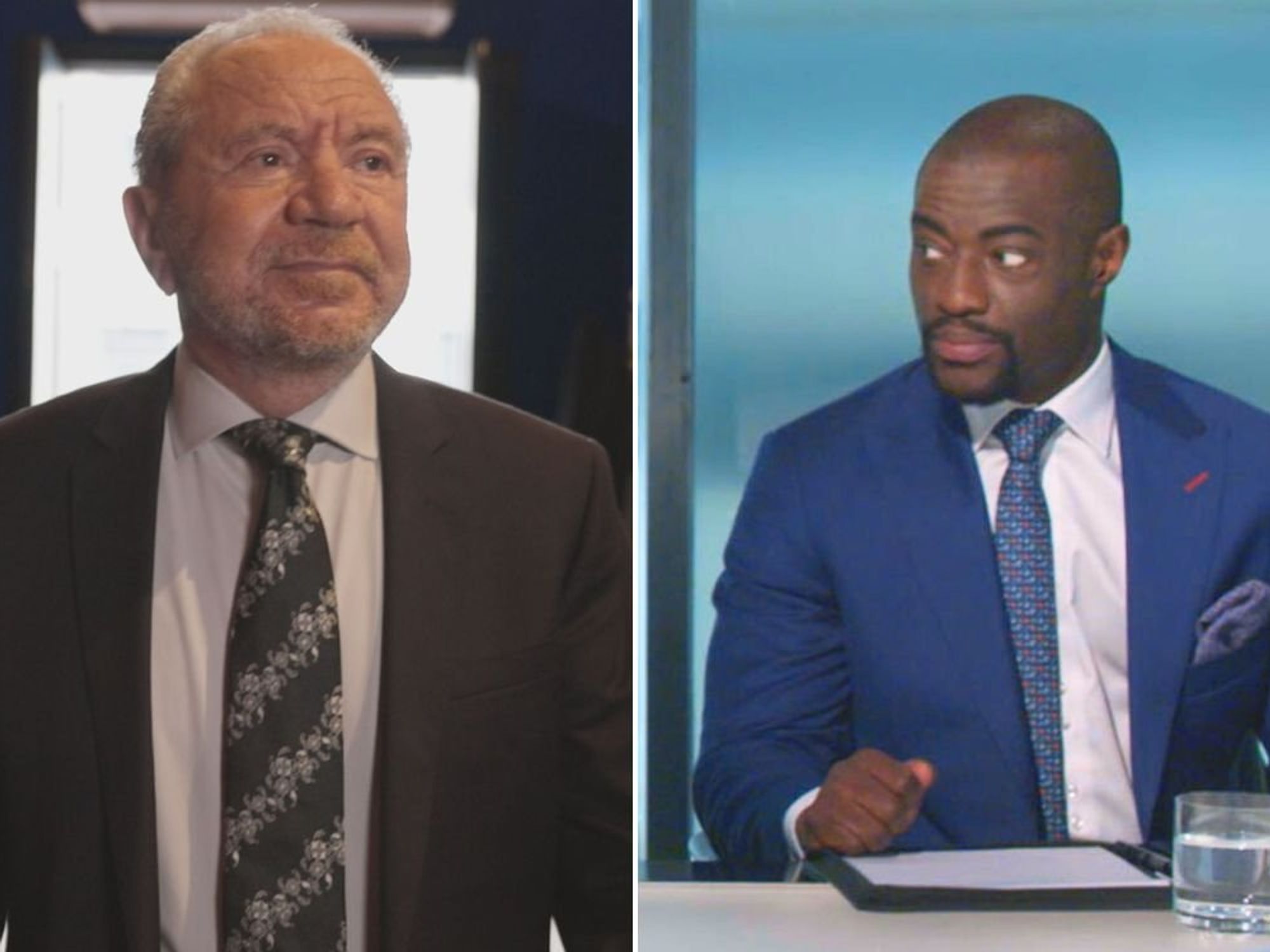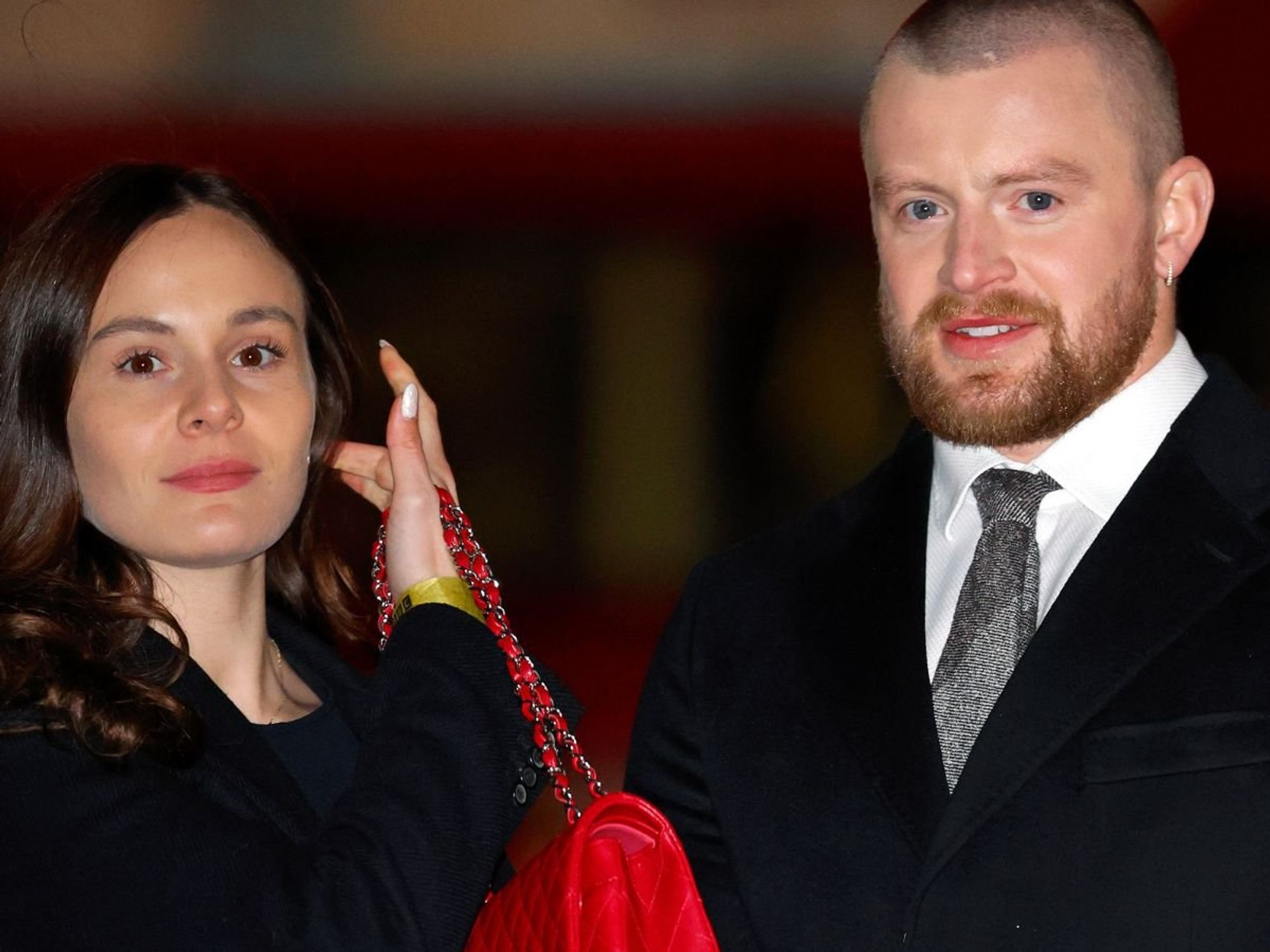What Britons REALLY think about immigration riots and protests - SHOCK POLLING
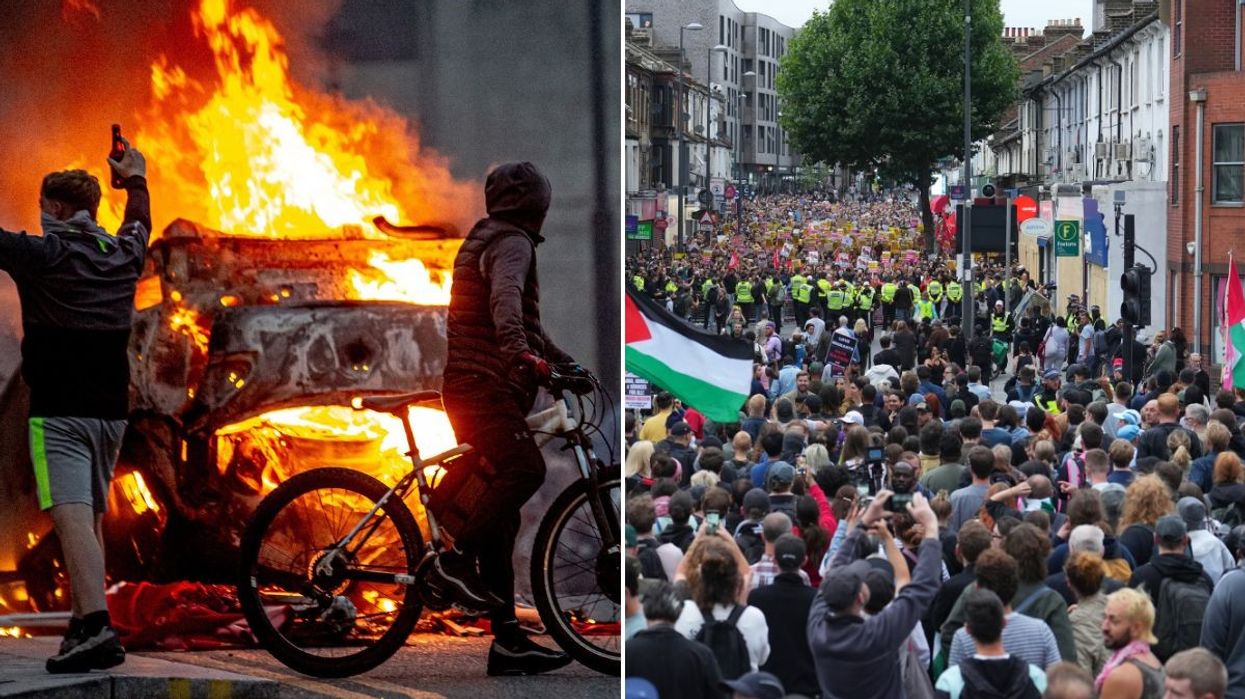
Protests and counter-protests have been taking place in parts of the UK over the past two weeks
|Getty
A new YouGov poll measured public attitudes to the protests, riots and who is responsible for causing unrest
Don't Miss
Most Read
Protests and violent riots have spread across parts of the UK over the past two weeks in the worst bout of social unrest the country has seen in years.
Violent scenes have emerged from anti-immigration protests triggered by the killing of three girls in a knife attack in Southport last Monday.
A new YouGov survey has examined the public's attitudes to the protests, the riots, and those taking part in them.
The poll, which surveyed 2114 British adults, found the riots are widely unpopular amongst Britons with 85 per cent of those surveyed opposing the unrest and just 7 per cent saying they support the violence.
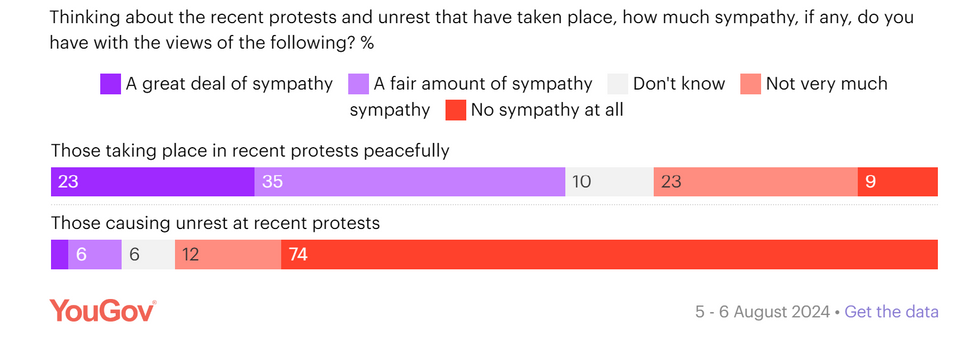
The poll results show six in ten Britons (58 per cent) have a great deal or fair amount of sympathy for those peacefully taking part in demonstrations
|YouGov
However, when asked if the public supports or opposes the broader protests, the figure rises to 34 per cent in support but still remains widely unpopular with 54 per cent opposed.
When asked if the public thinks the protests were justified, a larger proportion agree (42 per cent) while 49 per cent oppose them.
However, Britons still believe the unrest and violence were not justifiable, with an overwhelming 82 per cent opposing it and only 12 per cent in support.
Sympathies with the views of those taking part in the protests are somewhat broader with six in ten Britons (58 per cent) saying they have a great deal or fair amount of sympathy for those peacefully taking part in demonstrations.
This support is spread across the political spectrum with the majority of Labour and Lib Dem voters (53 to 56 per cent), alongside two-thirds of Conservatives (64 per cent) and 83 per cent of Reform UK voters.
But this sentiment does not translate to sympathising with those rioting as only 8 per cent of Britons show sympathy and 86 per cent show not very much or no sympathy at all.
The poll, conducted between August 5 and 6, also measured who respondents believe is responsible for the riots.
It found that across all parties, voters held those taking part in the riots themselves most responsible for causing the unrest with nine in ten (88 per cent) pointing to the rioters.
Social media is also seen as highly responsible for the riots with 86 per cent of the public viewing it as a key factor in causing unrest.
There's also broad agreement that more conventional news media is to blame with seven in ten Britons (69 per cent) seeing it as driving the riots while only 19 per cent believe they aren't responsible.
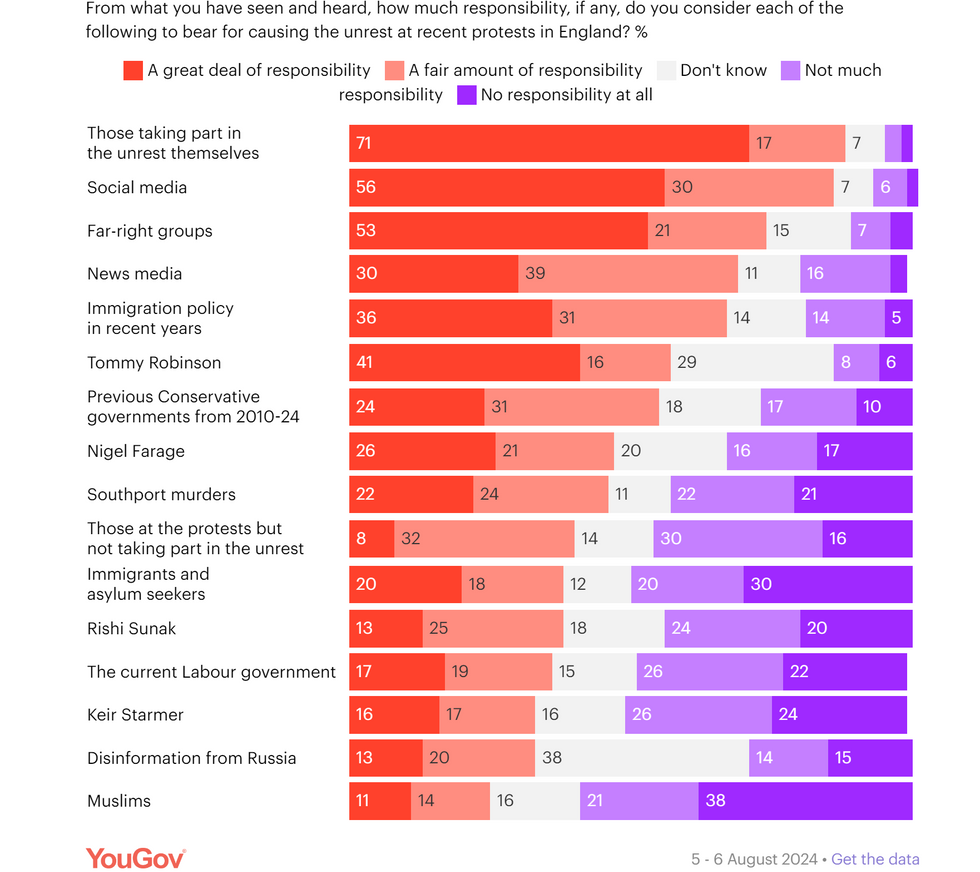
This poll shows the public mostly blame those taking part in the unrest themselves for violence at protests
|YouGov
LATEST FROM MEMBERSHIP:
The public also views longer-term political causes as a reason for unrest with two-thirds of Britons (67 per cent) viewing immigration policy over the years as a factor with 55 per cent saying the same about the recent Conservative government.
Speaking on the polling, political commentator Matt Goodwin said: "The vast majority of Brits blame recent immigration policy —a point that Keir Starmer, Yvette Cooper, and the Labour government, which remain firmly committed to the disastrous policy of mass immigration, would do well to reflect on."
Goodwin also points out that the majority of Britons "firmly reject the notion that immigrants and asylum-seekers themselves are to blame, a view only 38% of people hold.
"Rather, what we are seeing, as I’ve argued from the start, is a population that holds the recent policy of mass immigration directly responsible for these events —a policy that’s been promoted by both the established Left and Right in recent years."
It comes as another poll by YouGov found immigration and asylum have topped the list of the top national issues for Britons for the first time since 2016.
The survey, conducted from August 5 to 6, shows that immigration and asylum are the most commonly chosen 'top issue' facing the country with 51 per cent of Britons picking it.
Goodwin continued: "What we’re seeing...is a country that is completely zoomed in on an issue everybody is talking about but few politicians appear willing to address."





